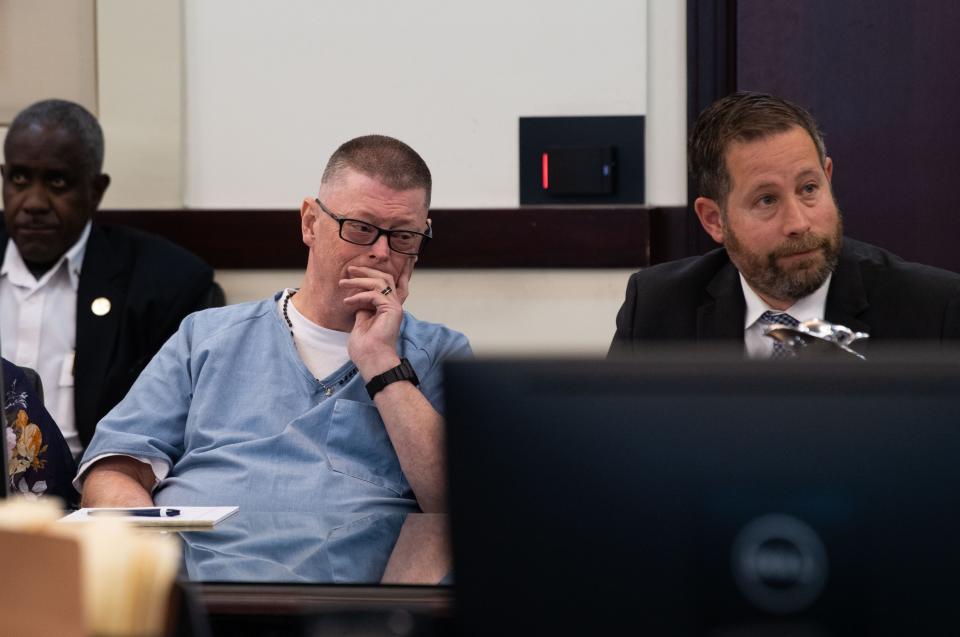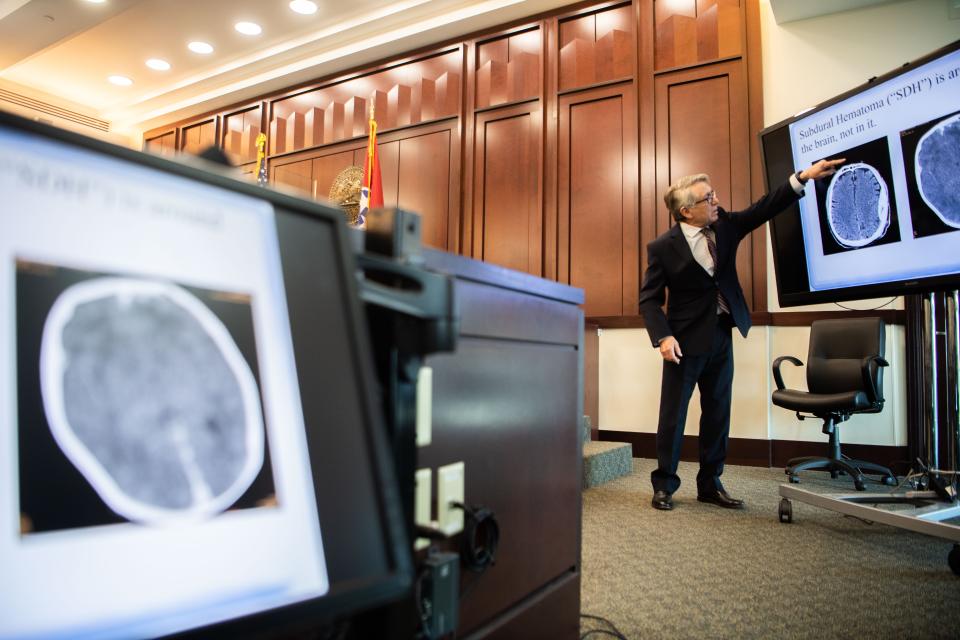Court considers overturning 2004 conviction based on questionable shaken baby diagnosis
A man whose murder conviction was based on a questionable diagnosis of shaken baby syndrome appeared in Nashville court on Tuesday and Wednesday in hopes of having his conviction overturned, an effort spurred by the conclusion of the district attorney’s office that he is innocent.
Russell Maze, convicted of murder in 2004 for the death of his infant son four years before, and the Davidson County District Attorney's Conviction Review Unit have asked the court to throw out his conviction.
Throughout Tuesday and until 11:30 Wednesday, Maze’s lawyers and assistant district attorneys questioned medical professionals from across the country who had reviewed evidence and Alex Maze’s medical records. They each testified that Alex’s diagnosis of shaken baby syndrome was highly unlikely if not flat out wrong.

For Maze’s conviction to be thrown out, lawyers need to convince the judge in the case, Judge Steve Dozier: the same man who oversaw Maze’s criminal trial 20 years ago.
Kaye Maze, Russell Maze's wife, who pleaded guilty to reckless aggravated assault in hopes of regaining custody of Alex and served a two-year sentence, said Wednesday that the hearing felt "surreal" because the process leading to it had been so long.
If his conviction is overturned, "it would be the end of a nightmare," she said. "We'll be able to start grieving."
The district attorney's office is also asking that Kaye Maze's conviction be overturned.
The afternoon of May 3, 1999, Maze’s five-week-old son Alex stopped breathing while Russell was home alone with him. First responders were able to revive him, and he was taken to Vanderbilt University Medical Center. The first possible diagnoses were for sepsis, abdominal trauma or head trauma.
After reviewing CT scans, an ophthalmology report, a visual examination of Alex, and Maze and his wife’s accounts of what happened, Dr. Suzanne Starling of the child abuse referral and examination team concluded that Alex was a victim of abusive head trauma. A skeletal survey, an EEG and several blood tests that had been ordered had yet to be completed.
“The symptoms are classic shaken baby syndrome,” Starling told detectives at the hospital that day, according to a report from the conviction review unit. Former Detective Kristen Vanderkooi, who participated in the interrogation of Russell and Kaye Maze, said Wednesday that Starling did not express any doubt as to her diagnosis.
Police questioned Russell and Kaye Maze at the hospital at length. Russell Maze repeatedly denied hurting or shaking Alex. But Det. Ron Carter continued to press him, and eventually, Russell Maze said he “guessed” Alex may have been shaken as he picked him up to try to revive him — after he had already stopped breathing.
After Alex’s discharge later that month, the Mazes lost custody, and he was taken to a foster home.
Alex was taken to a hospital on Oct. 19, 2000, and he died six days later. Doctors attributed his ongoing health issues and death to shaken baby syndrome.
Russell Maze was convicted of first-degree murder and sentenced to life in prison in 2004.
What the doctors who testified said was that the evidence did not support Alex’s diagnosis of shaken baby syndrome but more likely indicated a stroke. Other details they testified to included that there was not the typical evidence of shaken baby syndrome on Alex’s body like his neck or ribs. Blood clots in the brain worsened days after Alex was admitted, which indicates they were caused by a buildup of blood from blockage, not trauma.

Additionally, Alex’s complex history of life-threatening medical issues was largely ignored, evidence shows. Alex was born six weeks early to a mother with several health issues, which already placed him at higher risk of medical problems.
Michael Laposata, chair of the department of pathology at University of Texas in Galveston and an expert in blood diseases, testified that many blood diseases can “masquerade” as child abuse.
Laposata said he is “firmly convinced” that Alex’s death was not caused by abuse.
Russell Maze is represented by the Tennessee Innocence Project. Kaye Maze is represented by attorneys Daniel Horwitz and Melissa Dix. Sunny Eaton, director of the Conviction Review Unit, and Anna Hamilton represented the district attorney's office.
Evan Mealins is the justice reporter for The Tennessean. Contact him at emealins@gannett.com or follow him on X, formerly known as Twitter, @EvanMealins.
This article originally appeared on Nashville Tennessean: Nashville shaken baby murder conviction gets a 2nd look 20 years later

